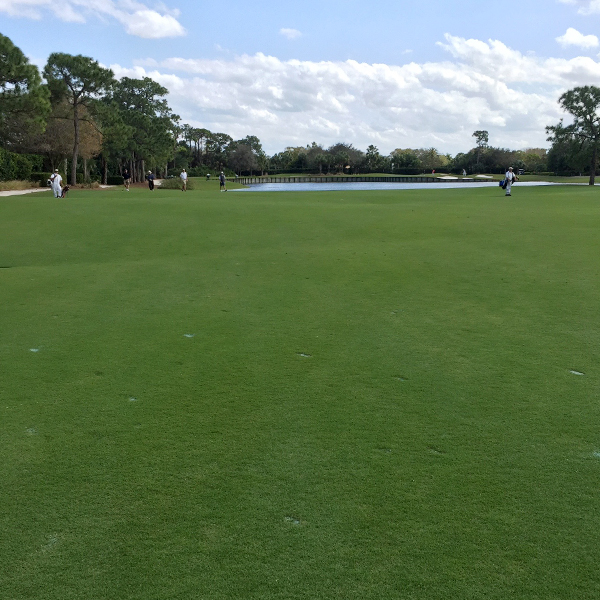
For the past 40 years, 419 Bermuda has been at the top of the list when it comes to sports turf. It grows quickly and densely, allowing it to bounce back quickly from wear and tear. 419 Bermuda’s durability extends to its close mowing tolerance and disease resistance. While 419 Bermuda is a great option for a sports field or golf course, it is also the perfect fit for a well-loved lawn. For a tough, durable lawn, look no further than 419 Bermuda. 419 is a top choice for sports and recreational turf for a reason: it grows quickly and densely, making recovery after wear and tear fast. Additionally, 419 Bermuda is disease resistant and can withstand low mowing. For these reasons, 419 Bermuda is the perfect choice for the greens on the course and the greens on your home lawn.
- Most popular grass for sports over the past 40 years
- Fine leaf texture with a dark color
- Used on golf course tees, fairways, and roughs
- Excellent for residential and commercial applications
- Aggressive growth provides exceptional wear and recovery characteristics
- Highly disease resistant
Tifway 419 Characteristics
SOIL MANAGEMENT
- Soil test every two years.
- Amend soil to maintain pH between 6.0 and 7.0
- Know your soil type!
MOWING
-
Sharpen blades every spring.
-
Keep mowed between .5 to 1.5 inches.
-
Don’t cut of more than 1/3 the blade.
IRRIGATION
-
Don’t Overwater
- Water less in cooler fall months
- About 1 inch a week total irrigation spring & summer
- Water deeply, frequently, and in early AM
WEED CONTROL
-
Pre-emergents prevent weeds from germinating
-
Post-emergents kill weeds after they germinate
-
A thick, lush lawn is the best deterrent to weeds
DISEASE CONTROL
- Overly wet grass + shade = fungus problems
- Apply systemic fungicide to prevent fungus outbreaks
- Use multiple fungicide applications to treat affected areas
INSECT CONTROL
- Use a broad spectrum insecticide that controls chinch bugs
- For a once-a-year treatment, July & August are good months
- Drought-stressed lawns are more susceptible to chinch bug injury
- If using a granular insecticide, water in after application

